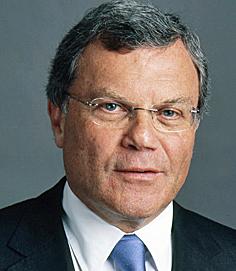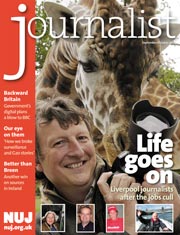 Sir Martin Sorrell is one of the Today programme’s go-to men.
Sir Martin Sorrell is one of the Today programme’s go-to men.
Every three months, when his company’s quarterly results are announced, the WPP CEO will appear on Radio 4’s flagship news show and offer his economic state of the nation.
WPP employs 135,000 people around the world, is worth some £5bn and has its fingers in many, many media pies – advertising, public relations, lobbying, marketing and investment management among them.
All of which makes him an interesting and informed listen on business and consumer sentiment.
Right at the end of this morning’s interview he was asked about ITV’s continued search for leadership, and he offered this stark assessment:
ITV is in a tough spot. It’s a one medium company in one country. And that’s a very difficult place to be particularly when you compete against the BBC who get three and a half billion pounds from the licence fee payer every year, in cash, upfront on January 1st.
One medium, one country? News to all those beavering away on ITV.com catch up, or at its Global Content division.
Perhaps ITV should have held on to FriendsReunited after all.
(You can listen to the full interview on the BBC iPlayer. Starts around 1.21.00)
Related:
– YouTube If You Want To: Why Susan Boyle Won’t Save Michael Grade’s Micropayment Plan
 I think I’ve finally got this blogging business cracked.
I think I’ve finally got this blogging business cracked. I was impressed, not necessarily by
I was impressed, not necessarily by 
 ‘
‘ While much of the Nick Griffin / Question Time chat was happening on Twitter, some people went straight to the source to express their views.
While much of the Nick Griffin / Question Time chat was happening on Twitter, some people went straight to the source to express their views.